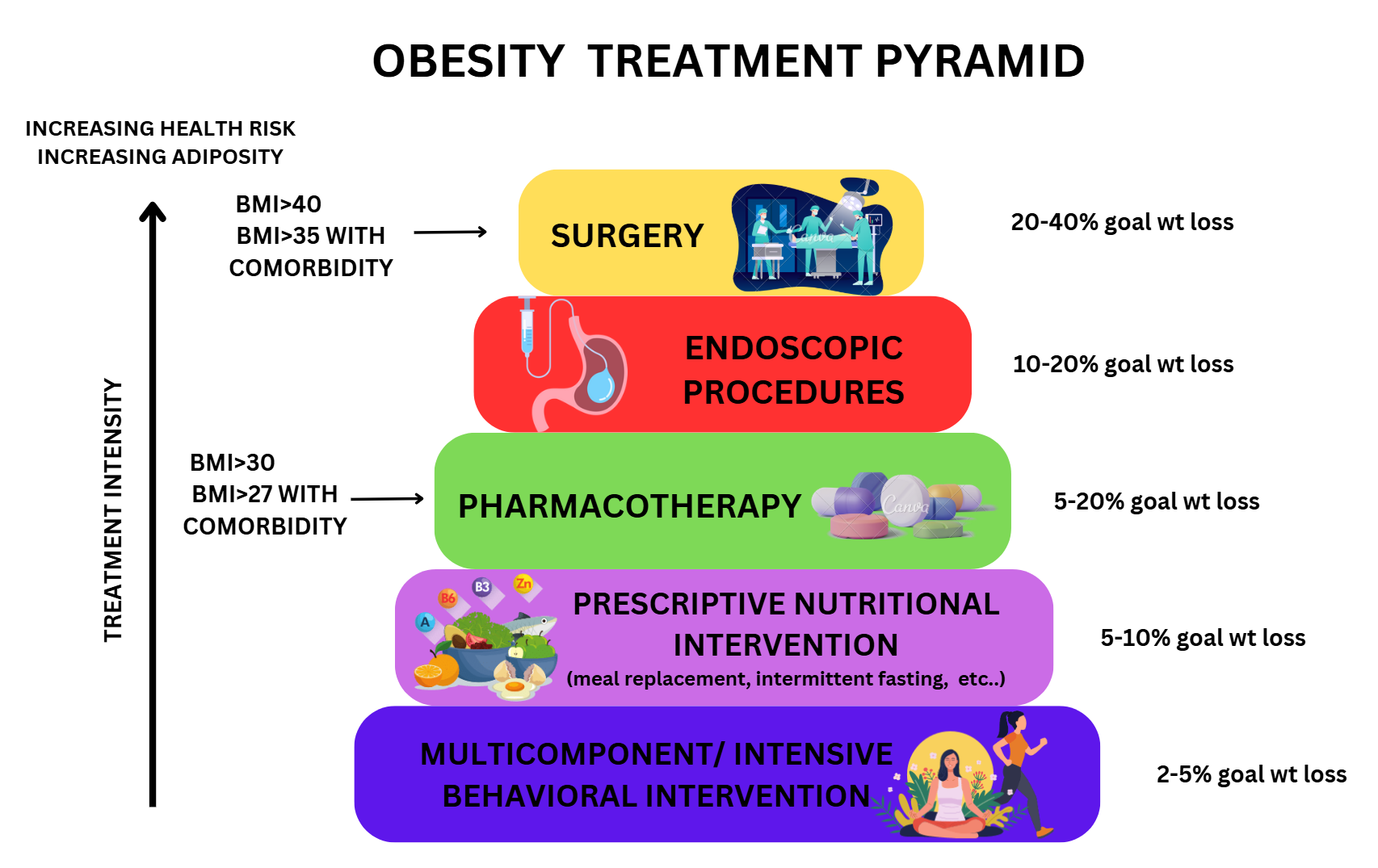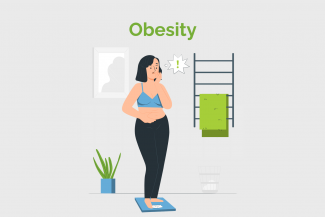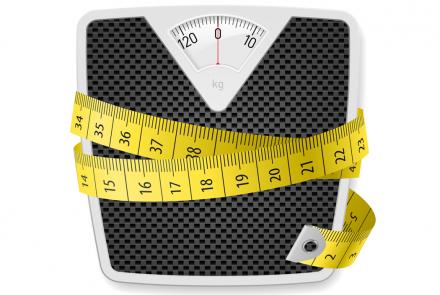Worldwide obesity has more than doubled since 1980. In 2014, more than 1.9 billion adults, 18 years and older, were overweight. Of these over 600 million were obese. 39% of adults aged 18 years and over were overweight in 2014, and 13% were obese. Most of the world's population live in countries where overweight and obesity kills more people than underweight. 42 million children under the age of 5 were overweight or obese in 2013.
Obesity is preventable.

Treatment of Obesity includes:
- History: The doctor will take a detailed history to understand the familial traits, your lifestyle, diet, and mental health condition.
- Physical examination: The doctor then measures height, weight, and BMI. The vital signs are checked like blood pressure, heart rate, and temperature followed by auscultation of heart and lungs.
Examination findings plus the lab findings determine the course of treatment if needed.
- Diet, behavioral and lifestyle changes (mentioned in the management section)
- Medications for weight loss:
- Bupropion-naltrexone
- Liraglutide
- Orlistat
- Phentermine-topiramate
- Semaglutide
- Surgical procedures:
- Endoscopic sleeve gastroplasty. In order to decrease the amount of food and liquid the stomach can contain at once; stitches are placed inside the stomach during this surgery. The goal is to reduce the intake that would help one to lose weight
- Intragastric balloon for weight loss: During this treatment, a little balloon is inserted into your stomach. After that, the balloon is filled with water to fill the stomach, making you feel fuller with less food. An endoscope is used to remove intragastric balloons after they have been in place for up to six months. Depending on the plan that you and your medical team decide upon, a new balloon may or may not be inserted at that point.
- Weight-loss surgery: Weight-loss surgery, also referred to as bariatric surgery, restricts the amount of food that can be consumed. Additionally, some operations restrict how much calories and nutrients you can take in. However, this can also lead to vitamin and dietary deficits. Weight-loss surgery, also referred to as bariatric surgery, restricts the amount of food that can be consumed. Additionally, some operations restrict how much calories and nutrients you can take in. However, this can also lead to vitamin and dietary deficits.
- Adjustable gastric banding: The stomach is divided into two pouches during this procedure by wrapping an inflatable band around its outside. To create a small passageway between the two pouches, the surgeon tightens the band, much like a belt. The band prevents the gap from widening. The band frequently remains there forever.
- Gastric bypass surgery: A little pouch is made at the top of the stomach by the surgeon during a gastric bypass, also known as a Roux-en-Y gastric bypass. After that, the small intestine is joined to the new pouch by cutting it just below the major stomach. Food and liquids bypass the majority of the stomach and enter this section of the intestine straight from the pouch.
- Gastric sleeve: Part of the stomach is removed, creating a smaller pouch for food. It's less complicated than gastric bypass surgery.

https://www.researchgate.net/figure/Obesity-treatment-pyramid-developed…
Changed
23/Mar/2025
Community
Condition

















